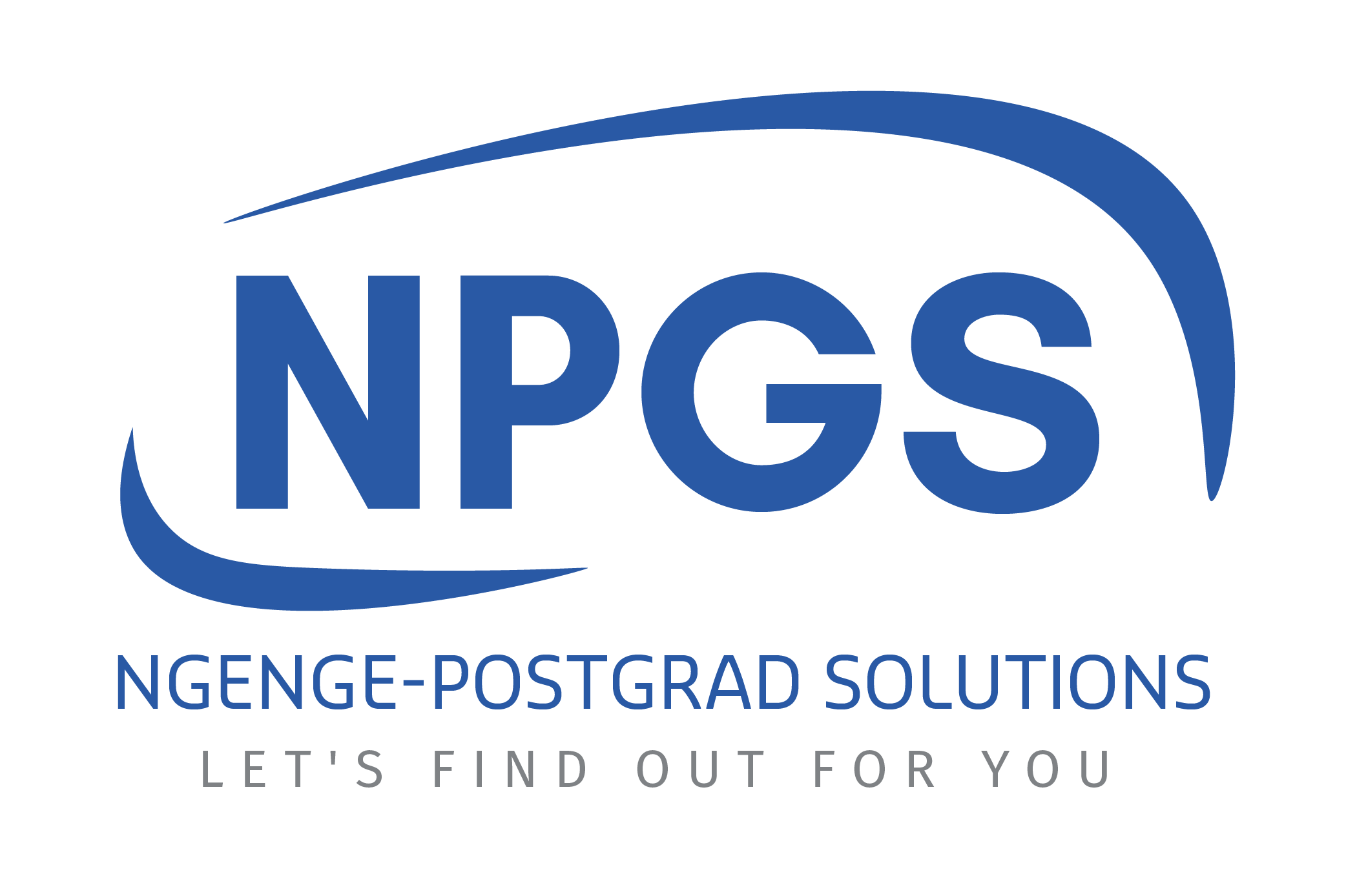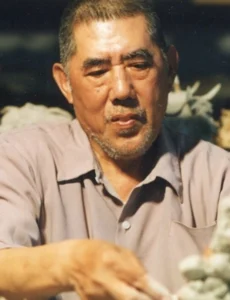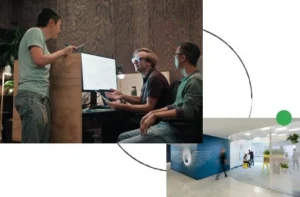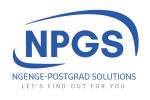NGENGE-POSTGRAD SOLUTIONS IS HERE TO HELP YOU: NPGS has an Application Help Service with a team of highly experienced professionals to help you find a position or prepare a CV or Cover Letter. Our professional experts can also apply for you from A to Z.
Application Deadline: Deadline: Open & varies
Funded PhD and Master Scholarships at the University of Sydney
Title: Jennifer Ferng’s Research Area University of Sydney Master and PhD Scholarships
Title: Chris Smith’s Research Area (University of Sydney Master and PhD Scholarships)
Academic Research Jobs
Title: Postdoctoral Research Associate/Fellow (Quantum Algorithms for Chemical Dynamics)
- Full time 3 years fixed term, located on the Camperdown Campus at the School of Chemistry
- Opportunity to make valuable contributions to research in Quantum Algorithms
- Base Salary Level A/B $95,047 p.a. – $110,856p.a. + 17% superannuation
- Deadline: July 13, 2022
About the opportunity:
Chemistry and materials science are among the most promising applications of quantum computation, especially using near-term quantum devices. The successful candidate will work with Associate Professor Kassal to rigorously benchmark the performance of digital quantum algorithms for simulating chemical dynamics, develop new ones, and identify chemical reactions that are most promising for early demonstrations of quantum advantage. Our goal is to identify the best algorithms for the hardest problems in chemistry, so that we can take maximum advantage of early quantum computers.
- undertake theoretical and computational research at the interface of quantum information science and theoretical chemistry
- disseminate research results through publications and conference presentations
- contribute to research planning, project management, and grant writing
- mentor undergraduate and postgraduate students
- establish and maintain external collaborations
- carry out limited administrative functions, such as maintaining supercomputer accounts.
The School of Chemistry at the University of Sydney is a leading Chemistry department in the country, with outstanding staff and students undertaking world-leading teaching and research. Our more than 30 academic staff, 100 research staff, and 100 research students conduct research across the full spectrum of pure and applied chemistry. Our research excellence is recognised by numerous prizes and awards to individual staff members and the award of over $7 million in research funding each year. With the support of over 30 professional, technical and administrative staff, the School of Chemistry administers and delivers undergraduate teaching for about 2500 students. We are committed to creating a diverse workplace by improving equity, access and opportunity, and we are continuously working to identify and remove biases and barriers in an effort to make our workplace open, supportive and safe for everyone.
About you
Postdoctoral Research Associate / Fellow (Quantum Algorithms for Chemical Dynamics) who has:
- a PhD (or near completion) in physics, chemistry, computer science, or a related field
- experience in theoretical or computational techniques in one or more of the following areas: design and analysis of quantum algorithms, quantum simulation, quantum dynamics, chemical dynamics (esp. non-adiabatic photochemistry, strong fields, or high-precision spectroscopy)
- demonstrated ability to conduct research under limited supervision
- a track record of disseminating significant research results through publications and presentations
- demonstrated ability to collaborate in multidisciplinary teams to contribute to long-term research goals
- excellent communication (written and verbal), organisational and problem-solving skills with attention to detail.
To keep our community safe, please be aware of our COVID safety precautions which form our conditions of entry for all staff, students and visitors coming to campus.
Your employment is conditional upon the completion of all role required pre-employment or background checks in terms satisfactory to the University. Similarly, your ongoing employment is conditional upon the satisfactory maintenance of all relevant clearances and background check requirements. If you do not meet these conditions, the University may take any necessary step, including the termination of your employment.
Title: Postdoctoral Research Associate – Ferroelectric Material Characterisation
- Full-time, fixed term until February 2024, Located at the Madsen Building, Camperdown Campus
- Exciting opportunity to work with Professor Julie Cairney’s research group at the Australian Centre for Microscopy and Microanalysis
- Base Salary Level A $95,047 – $105,305 + 17% superannuation
- Deadline: July 11, 2022
About the opportunity
Relaxor-ferroelectrics are fascinating next-generation materials, but the mechanism of relaxor-ferroelectricity has been puzzling the scientific community for more than 70 years. This project, performed in partnership with Australian Defence researchers and UNSW, has a specific interest in understanding how the piezoelectric properties can be applied to underwater sonar applications. The local structural disorder coupled with the nano-scale domain formation creates a unique multi-length-scale system that requires a range of analytical methods to correctly characterise. Aligning with the deep experience of research groups at USyd and collaborators at UNSW, the post-doc will develop new characterisation standards for assessing relaxor ferroelectric properties. This will be achieved by utilising a world-class array of advanced microscopy infrastructure, including an aberration corrected transmission electron microscope (the highest resolution microscope available) and in-situ holders that allow direct observations of the microstructure as the sample is exposed to stress, strain or electrical stimuli.
The School of Aerospace Mechanical and Mechatronic Engineering (AMME) is one of Australia’s premier engineering schools with an international reputation built on more than 130 years’ experience. It is home to some of Australia’s most prominent research centres in the fields of aerospace, biomedical, mechanical and mechatronic engineering, including the Australian Centre for Field Robotics (ACFR), the Centre for Robotics and Intelligent Systems (CRIS), the Institute of Biomedical Engineering and Technology (BMET) and the Centre for Advanced Materials and Technology (CAMT).
The University values courage and creativity; openness and engagement; inclusion and diversity; and respect and integrity. As such, we see the importance of recruiting talent aligned to these values and are looking for Postdoctoral Research Associate in Ferroelectric Material Characterisation who has:
- a PhD in materials engineering, chemistry, physics, or equivalent; applicants who have submitted their PhD for examination or will do so in the near future will also be considered
- proven skills and experience in characterisation of functional materials using microscopy techniques
- an ability to work independently and to communicate effectively with team members
- high-level verbal and written communication skills, especially in scientific communication and the preparation of reports and manuscripts with minimal guidance
Title: Postdoctoral Research Associate in FPGA-based Machine Learning
- Full time for 12 months
- Opportunity to advance research in radio frequency machine learning
- Base Salary $95,047 – $105,305 + 17% superannuation
- Deadline: June 26, 2022
About the opportunity
Your key responsibilities will be to:
- deliver outcomes in a research project and ensure that milestones are met
- work with colleagues and postgraduates within the project
- prepare materials for publications in journals and conferences
The University values courage and creativity; openness and engagement; inclusion and diversity; and respect and integrity. As such, we see the importance of recruiting talent aligned to these values and are looking for a Postdoctoral Research Associate in FPGA-based Machine Learning who has:
- a PhD in FPGA design, signal processing or machine learning (exceptional candidates who are near completion are also invited to apply)
- experience in the development of machine learning models using Python
- expertise in several of the following technical areas: physical layer wireless communication, classification of signals, sensors, convolutional neural networks.
Title: Research Fellow – Preclinical Disease Models
- Full time, fixed term for 3 years with a possible extension
- Great opportunity to contribute to research into the therapeutic effects of cannabinoids within brain disorders at the Lambert Initiative for Cannabinoid Therapeutics
- Base Salary from $110,000 – $131,000 + 17% superannuation
- Deadline: July 20, 2022
About the opportunity
Your key responsibilities will be to:
- interface with current Lambert Initiative researchers in the areas of medicinal chemistry, cellular pharmacology and preclinical and clinical research to advance drug discovery and development of cannabinoid therapeutics
- conduct studies assessing the efficacy of cannabinoids in animal models of disease with an emphasis on brain disorders
- a PhD in a relevant area such as drug discovery, neuroscience, biochemistry or pharmacology
- strong expertise and research experience in medical research particularly in drug discovery and pharmacology
- demonstrated expertise in epilepsy or sleep research including performing EEG studies in rodent models would be particularly well regarded
- independence in conducting high-quality research under limited supervision
- proven high-level problem-solving skills
- a strong track record in research publication in journals of high impact
- excellent organisational and administrative skills with attention to detail; excellent written and verbal communication skills
- experience with funding applications for research grants and/or research fellowships.
- If successful you will be appointed to the Discipline of Pharmacology, Sydney Pharmacy School, Faculty of Medicine and Health. To keep our community safe, please be aware of our COVID safety precautions which form our conditions of entry for all staff, students and visitors coming to campus.
More Details and Apply.
Title: Postdoctoral Research Associate in Nonlinear Partial Differential Equations
- Full time 12 months fixed term (with a possible extension), located on the Camperdown Campus at the School of Mathematics and Statistics
- Opportunity to be part of a vibrant and collegial community of world-class mathematicians and statisticians
- Base Salary Level A $95K – $98K p.a. + 17% superannuation
- Deadline: July 3, 2022
Do you want to be part of a vibrant and collegial community of world-class mathematicians and statisticians?
The successful candidate will be expected to carry out collaborative research on this project and we are looking for someone with background in nonlinear partial differential equations with isolated / boundary singularities. The project will focus on the local / global behaviour of singular solutions for general classes of elliptic / parabolic equations with nonlinear source term, along with the existence and classification of the singular behaviour for nonlinear elliptic equations with boundary singularities.
Your key responsibilities will be to:
- undertake research in the area of the project
- publish research papers
- demonstrate research excellence
- assist with grant writing and publishing original work.
About you
- a PhD (or near completion) in Mathematics with preference in Partial Differential Equations
- proven published research as sole author or in collaboration
- experience in research record keeping, preparation of research papers and seminars
- the ability to carry out high quality research in the areas of nonlinear analysis and partial differential equations
- a background in elliptic / parabolic equations / fully nonlinear partial differential equations
- a demonstrated ability to conduct high-quality research under limited supervision either independently or as part of a research team
- high level of interpersonal skills, including the ability to work collaboratively with colleagues
- a demonstrated ability to complete work in timely fashion and to write up results for publication
- excellent written and verbal communication skills.
More Details and Apply.
Title: Postdoctoral Research Associate in Medical Imaging (IMPACT Program)
- Utilise your exceptional medical imaging and processing skills to help implement a novel technology for breast and lung imaging
- Based at the Susan Wakil Health Building on the Camperdown campus, with the potential to travel interstate for work
- Full time fixed term until July 2025 with a Base Salary $98,645 – $105,305 + 17% superannuation
- Deadline: July 3, 2022
The School of Health Sciences is the largest health sciences school in Australia consisting of seven disciplines. The School provides professional preparation programs for a comprehensive range of health science professionals, as well as general degrees in health science. The School enjoys a strong and dynamic research culture resulting from its commitment to achieving and sustaining research excellence in areas of established and emerging research strengths. The School has approximately 200 academic staff, 100 professional staff and 4,500 students.
Your key responsibilities will be to:
- reconstruct and process volumetric medical images
- assess objective image quality and investigate image interpretation by radiologists
- support in the running of a clinical trial in this area
- work effectively as part of a large team
- lead drafting of research publication and presentation
About you
- a PhD in medical imaging, medical physics, biomedical engineering, or closely related disciplines
- a considerable experience in digital image processing and using software (e.g., MATLAB, Python etc.) to create, process, and display DICOM images
- advanced fundamental understanding of image quality in medical imaging and the relevant quantitative data analysis methods
- proven high-level problem-solving skills and independence in conducting high-quality research
- a strong track record in research publication and presentation (essential) and experience in writing grant applications (desirable)
- excellent interpersonal skills and ability to work in a team, collaborate across disciplines and build effective relationships with stakeholders and consumers.
More Details and Apply.
Title: Postdoctoral Research Associate in Porous Materials for Hydrogen Storage
- Full time 2-year fixed term, located on the Camperdown Campus at the School of Chemistry
- Opportunity to make valuable contributions to research in porous materials for hydrogen storage and delivery
- Base Salary Level A $95K – $98K p.a. + 17% superannuation
- Deadline: July 20, 2022
We are seeking to appoint a Postdoctoral Research Associate to work on a project relating to developing porous materials for hydrogen storage. The Research Associate will work under the supervision of Cameron Kepert and Lauren Macreadie and be part of the Rux Energy team in the School of Chemistry at the University of Sydney.
- undertake research in MOF and other porous material chemistry
- publication of research papers
- demonstrate research excellence
- assist with grant writing and publishing original work
- support the supervision of undergraduate and postgraduate students.
The School of Chemistry at the University of Sydney is a leading Chemistry department in the country, with outstanding staff and students undertaking world-leading teaching and research. Our more than 30 academic staff, 100 research staff, and 100 research students conduct research across the full spectrum of pure and applied chemistry. Our research excellence is recognised by numerous prizes and awards to individual staff members and the award of over $7 million in research funding each year. With the support of over 30 professional, technical and administrative staff, the School of Chemistry administers and delivers undergraduate teaching for about 2500 students. We are committed to creating a diverse workplace by improving equity, access and opportunity, and we are continuously working to identify and remove biases and barriers in an effort to make our workplace open, supportive and safe for everyone.
The University values courage and creativity; openness and engagement; inclusion and diversity; and respect and integrity. As such, we see the importance of recruiting talent aligned to these values and are looking for a Postdoctoral Research Associate who has:
- a PhD (or near completion) in Chemistry or Chemical Engineering specialising in Chemistry or a cognate discipline
- synthetic organic chemistry skills
- experience in the synthesis and structural characterisation of porous materials
- experience in powder X-ray diffraction (PXRD) characterisation
- high level communication skills and ability to network effectively and interact with a diverse range of students and staff
- demonstrated ability to work in a team, collaborate across disciplines and build effective relationships.
- evidence of highly developed interpersonal and organisational skills
- highly proficient in the preparation of manuscripts for publication.
- use of software required for PXRD (ie. GSAS, TOPAS)
- experience in single crystal X-ray diffraction and processing data to publishable formats
- knowledgeable in the work-up of gas adsorption data for MOF materials
- demonstrated experience working with industry
- proficient in the preparation of reports for industry.
More Details and Apply.
Title: Postdoctoral Research Associate in the Neural Basis of Extinction and Response Inhibition
- Full time 2 years fixed term contract, located on the Camperdown Campus at the School of Psychology
- Opportunity to make valuable contributions to research in the neural basis of extinction and response inhibition in humans
- Base Salary Level A $95K – $98K p.a. + 17% superannuation
- Deadline: July 17, 2022
We are seeking to appoint a Postdoctoral Research Associate to conduct research using Transcranial Magnetic Stimulation (TMS) to investigate extinction and response inhibition in humans. The successful candidate will work under the supervision of Professor Justin Harris; this role will be part of an Australian Research Council grant to investigate the role of local inhibitory processes in human motor cortex in the control of learned responses undergoing extinction. They will be involved in the supervision of undergraduate students undertaking their research in the area of the grant.
- undertake research using TMS to study extinction and response inhibition in humans
- contribute to the publication of research papers
- demonstrate research excellence
- assist with grant writing and publishing original work
- support supervision of undergraduate and postgraduate students.
The School of Psychology was the first established Psychology department in Australia and is currently one of the largest and has a proud history of excellence that characterises all its research and educational activities. Sustained increases in research funding and strong enrolments have facilitated a rapid growth in our staffing and research profile.
The University values courage and creativity; openness and engagement; inclusion and diversity; and respect and integrity. As such, we see the importance of recruiting talent aligned to these values and are looking for a Postdoctoral Research Associate who has:
- a PhD (or near completion) in psychology or relevant branch of cognitive neuroscience and equivalent combination of training and experience
- demonstrated ability to conduct research/scholarly activities under limited supervision
- the ability and a willingness to collaborate in multidisciplinary teams to contribute to long-term research goals
- excellent communication (written and verbal), organisational and problem-solving skills with attention to detail
- a strong track record of publishing their research.
Title: Postdoctoral Associate in biophysics and mechanobiology
- Full time, 2 years fixed term. Located on the Darlington Campus at the School of Biomedical Engineering
- Opportunity to contribute to innovative research biophysics, mechanobiology, biomaterials
- Base Salary $95K – $105K + 17% superannuation
- Deadline: July 19, 2022
About the opportunity
We are seeking a Postdoctoral Research Associate in Biophysics and Mechanobiology to join the team in the new mechanobiology and biomechanics laboratory (MBL) within the School of Biomedical Engineering. MBL established the innovative 4M approaches in Australia: Mechanics, Microscopy, Microfabrication & Molecular modelling to understand the emerging mechanobiology and implication in cardiovascular diseases and cancer. By working with the Charles Perkins Centre, Sydney Nano Institute, and Royal Prince Alfred Hospital, MBL is now developing point-of-care microdevices, artificial intelligence imaging modalities and mechano-medicine screening platform to predict, diagnose and treat diseases with a future vision of personalised mechanobiology technologies.
About you
- a PhD in a relevant field specifically biophysics, cell biology and biomaterials with a strong hands-on PC1 and PC2 lab experience including a body of biological work published in peer reviewed journals. Applicants who have submitted their PhD for examination or will do so in the immediate future can be considered
- experience in 2D cell culture, 3D spheroid/organoid culture, biomaterial development, flow cytometry, fluorescent and confocal microscopy operation and imaging
- some knowledge and interest in programming, e.g. familiarity with using two or more of Labview, ImageJ, AutoCAD, MATLAB, 3D-max, PRO-E, SolidWorks and other engineering and physics software;
- outstanding interpersonal, written, and oral communication skills and the ability to conduct high quality research with increasing independence and to present that work in an engaging way.
Candidates who demonstrate the following criteria will be highly regarded:
- capabilities in independent microdevice instrumentation, e.g. instrumenting or operating optical tweezers, micropipette aspiration systems, patch clamping, micromanipulation and microinjection systems, or other biophysical experimental devices such as rheometers and parallel plate flow chambers and microfluidic system
- solid basic knowledge of cell biology and hands-on experience in PC2 biological laboratory, using flow cytometer, cell culture, ELISA, protein coating, conjugation, protein-protein interaction assays, protein/antibody labelling and functional characterization
To apply for this role, please attach a cover letter to your application, outlining your suitability for the role.
Title: Postdoctoral Research Associate in Deep Learning
- Contribute to innovative research in the field of artificial intelligence
- Located on the Darlington Campus at the School of Electrical and Information Engineering
- Full time for 18 months offering a base salary of $95K – $105K p.a., plus leave loading + 17% superannuation
- Deadline: July 3, 2022
About the opportunity
The School of Electrical and Information Engineering has a reputation for the quality of its graduates, innovation in its undergraduate curriculum, and for the strength of its research and postgraduate teaching programs. The school has achieved major research outcomes in the fields of software, bio-electronics, computer engineering, photonics, power and telecommunication engineering
The University values courage and creativity; openness and engagement; inclusion and diversity; and respect and integrity. As such, we see the importance of recruiting talent aligned to these values and are looking for a Postdoctoral Research Associate who has:
- completed (or near completion) a PhD in the relevant field of Computer Vision, Pattern Recognition, Image/Video processing or Machine Learning
- demonstrated skills/knowledge/experience in artificial intelligence research
- a proven track record through literature review, qualitative and quantitative research and laboratory methods
- demonstrated contributions to publications in top tier conferences and journals (e.g., IEEE T-PAMI, IEEE T-TIP, CVPR, ICCV, ECCV, ICML and NeurIPS)
More Details and Apply.
Title: Systems Modelling Postdoctoral Research Fellow
- Full-time, fixed term until July 2023 possibility of extension
- Opportunity for system dynamics modeller experienced in participatory approach to research
- Base salary $110K – $135K plus 17+ super
- Deadline: July 4, 2022
About the opportunity
The youth mental health and technology team in the University of Sydney’s Brain and Mind Centre puts young people at the centre of their own care. We partner with health services to develop innovative treatments for those aged 12-25 with emerging mental health disorders. The integration of cutting-edge research with safe and effective clinical care enables us to quickly and effectively translate our research findings into clinical services, facilitating continuous improvements to mental health services for the benefit of young people in Australia.
We are looking for a Systems Modelling Research Fellow to join our Systems Modelling, Simulation & Data Science Team and contribute to a research project of national significance for youth mental health. The right care, first time where you live project will assist policy makers to make the best investment decisions relating to youth mental health in communities across Australia.
Your key responsibilities will be to:
- undertake system dynamics modelling to evaluate strategic policy and planning initiatives to improve youth mental health across diverse contexts
- engage in participatory approaches to model building, in partnership with key healthcare decision makers and consumers
- work within a team of systems modellers, senior academics, data scientists and clinicians to deliver high quality research outputs.
About you
- a PhD in fields of Population Health/Public Health, Systems Science, or Data Science
- experience in undertaking system dynamics modelling or a researcher with strong data analytic skills who is interested in training in the application
- a strong applied research and service orientation with a proven ability to build successful working relationships with a variety of people, both internal and external
- experience with Stella Architect software desirable but not essential
- knowledge and /or experience in Epidemiology and/or Biostatistics, relevant to population health
- proven high level analytical skills and a methodical approach to data management, and analysis
- strong interpersonal and communication skills
- ability to travel to regions around Australia.
More Details and Apply.
Title: Research Fellow
- Full time, 2 year Fixed term with possible extension
- An exciting opportunity to collaborate with Aboriginal and Torres Strait Islander communities to research culturally inclusive social and emotional wellbeing promotion in secondary schools
- Located at our renowned Matilda Centre, on Camperdown Campus
- Base salary (Level A) $78,143-$105,305 / (Level B) $110,856 – $131,639 + 17% superannuation
- Deadline: July 10, 2022
About the opportunity
The Matilda Centre for Research in Mental Health and Substance Use provides a world-first synergy of leading prevention, early intervention and treatment research and translation programs in substance use and mental disorders. The Matilda Centre brings together researchers in broad fields to share skills, integrate data, and harness new technologies to develop and trial innovative prevention, early intervention and treatment programs for substance use and mental disorders.
The Matilda Centre is seeking a Postdoctoral Research Fellow (Level A) / Research Fellow (Level B) to develop a program of prevention-focused research and dissemination. Within this role you will work with Aboriginal and Torres Strait Islander communities to develop, implement and evaluate culturally inclusive school-based drug and alcohol prevention resources. You will be actively involved in consulting with Aboriginal and Torres Strait Islander communities and supporting local Aboriginal facilitators to implement the wellbeing program and research.
This position is open to qualified academic Level A and B applicants. The level at appointment will be determined on the skills and experience of the selected candidate.
To be successful in this position you will be able to use a high degree of initiative and judgement to coordinate multiple activities and teams.
Your key responsibilities will be to:
- Co-ordinate consultations with Aboriginal and Torres Strait Islander communities and stakeholders to gain feedback on the project aims and implementation, and interpretation of the findings.
- Liaise and work in partnership with stakeholders, designers and web developers to refine and update the Strong and Deadly Futures school-based program.
- Manage a cluster randomised controlled trial to evaluate the Strong and Deadly Futures program, including the recruitment of schools, data collection and management and intervention delivery.
- Develop a program of prevention-focused research and dissemination, including preparing funding applications, conducting data analysis and preparing publications for peer-review journals and conference presentations
More Details and Apply.







